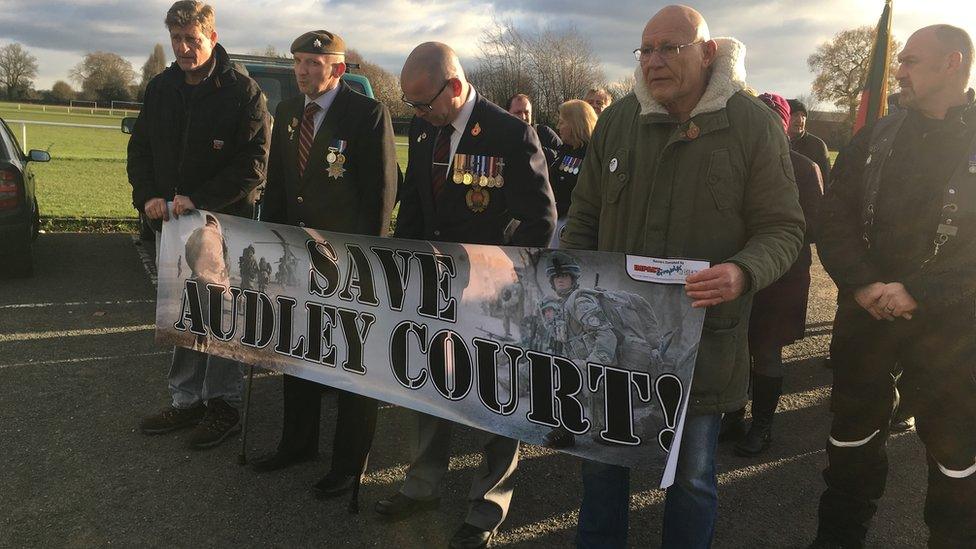War veteran Gus Hales ends Combat Stress hunger strike
- Published
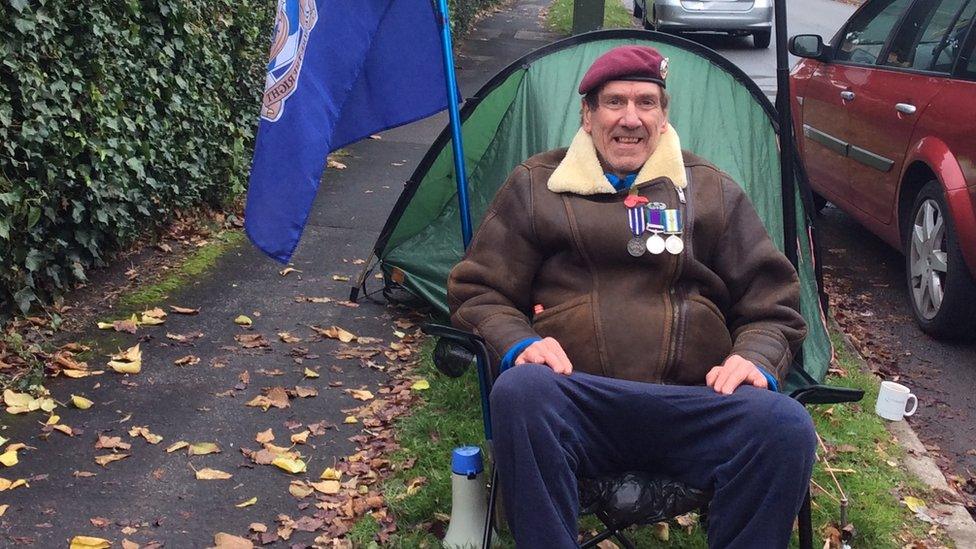
Gus Hales said he would not eat until Remembrance Day in protest at the way he was discharged by Combat Stress
A Falklands war veteran has finished a two-week hunger strike in protest at his treatment by a mental health charity.
Gus Hales, 62, from Brecon, Powys, has been camped outside Combat Stress in Newport, Shropshire, claiming it improperly discharged him in 2015.
He was also campaigning for greater mental health support for veterans.
The charity "apologised unreservedly" to Mr Hales and will be reviewing its discharge of other veterans.
Mr Hales said he had heard from 150 other people who felt let down by the service and wanted an independent inquiry into Combat Stress.
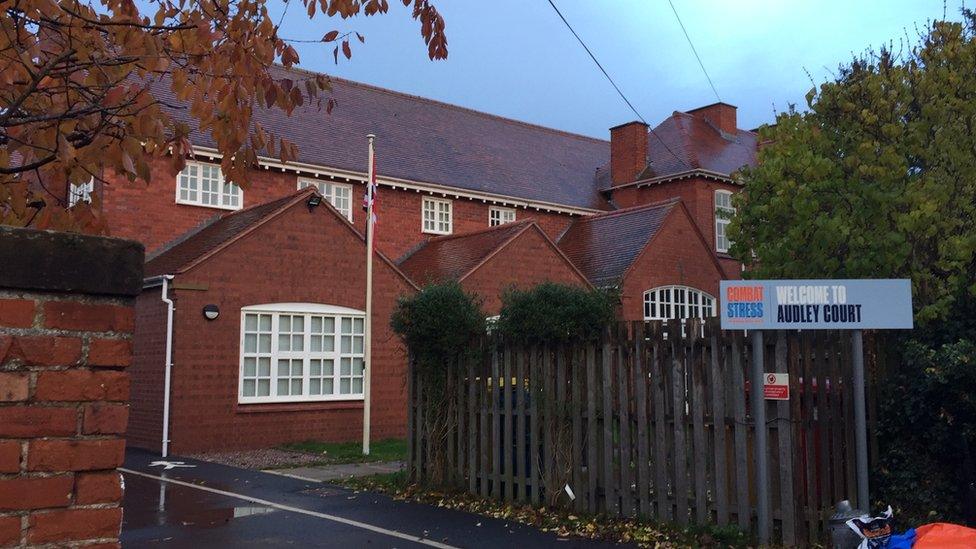
Mr Hales travelled from his home in mid Wales to camp outside the Combat Stress building
He served in the Falklands as part of the 9th Parachute Squadron, Royal Engineers, where he said he witnessed the bombing of the landing ship Sir Galahad, which had a "tremendous effect" on his life.
After being diagnosed with post-traumatic stress disorder (PTSD), he had a period of treatment with Combat Stress.
But a few years later he received an unannounced visit from a charity welfare officer who discharged him on his doorstep.
He requested a discharge report about his condition, but has not received one.
The charity said it would normally have issued such a report to a patient and their GP.
"Regarding the issue of Mr Hales' discharge from our services, we have unreservedly apologised to him for the manner in which he was discharged in 2015," a spokesman added.
"We are working with him to resolve his concerns."
Mr Hales said he believed it had been important to stage a protest.
"I just thought, this has gone far enough, it is costing lives, I need to make a stand," he said.
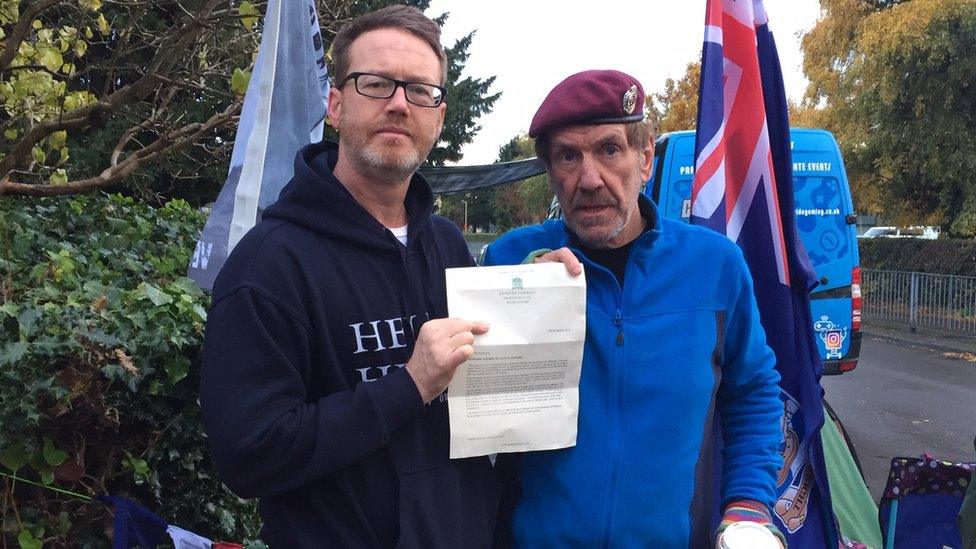
Mr Hales was supported by other veterans, including Newport-based Paddy McCartney who used medical experience to monitor his condition
A year ago veterans also staged a protest after the charity stopped its in-house care.
They are now working to open their own respite care centre of eight beds on the site, having raised £10,000 towards it, and are due to meet Combat Stress next week to present final proposals. They hope it could open in early 2019.
Founder Pete Neal is himself a veteran treated for PTSD by Combat Stress.
He said the charity allowed veterans to talk and share experiences, "which is how we cope".
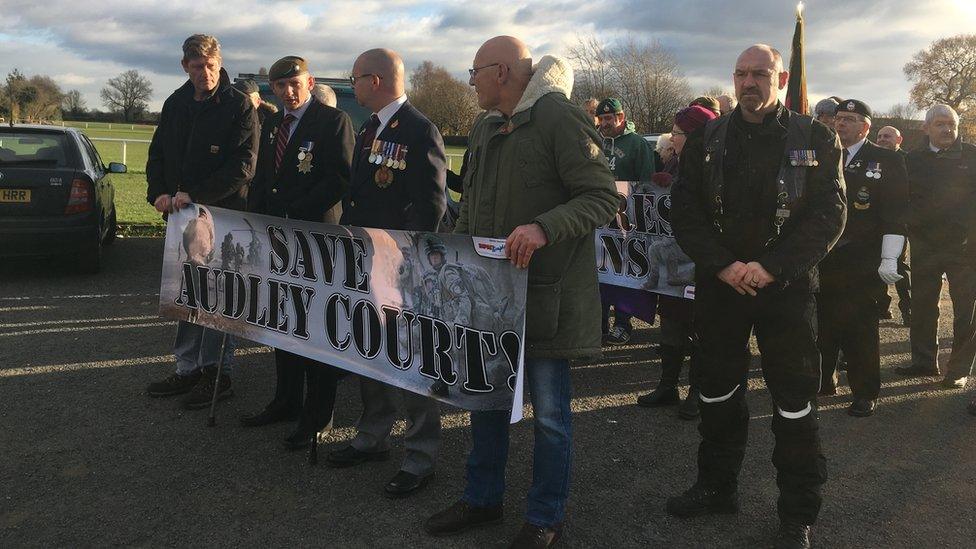
Campaigners have staged protests in the past after the restructuring plans were announced
- Published1 December 2017
